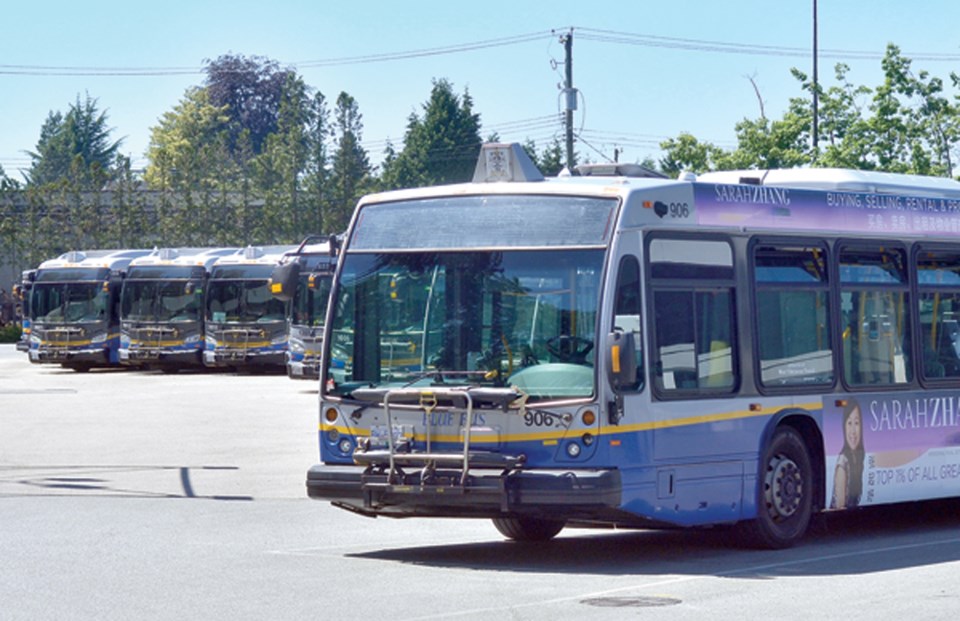A strike by West Vancouver’s Blue Bus workers has been averted.
The Amalgamated Transit Union Local 134 announced Wednesday (Sept. 7) morning that they had reached agreement with the District of West Vancouver to resolve the ongoing labour contract dispute through binding arbitration.
The agreement came about an hour before the union was to announce details of a plan for rotating strikes and picketing at Park Royal.
“The employer’s attitude changed,” said Cornel Neagu, ATU Local 134 president. “Our message always was we want to avoid a strike. We never wanted to escalate. We never wanted to make a disruption for our riders.”
The union local last went on full strike in 2016 for one day before a deal could be reached.
The Blue Bus carries about 18,000 passengers per day.
As a show of goodwill, the union has also agreed to end its ban on uniforms and overtime for employees, which has been in place since late July, effective Sept. 8.
“We've achieved what we hoped and through this process,” said International ATU vice-president John Callahan. “And as a result, we don't think any further strike action is needed. Both our riders and our members have sacrificed to try and make our statement and we've achieved that.”
The ban on overtime among drivers and mechanics has led to a drop in service levels by 10 to 13 per cent, at the district’s last estimate.
Today, more than 20 per cent of the Blue Bus fleet is currently stuck in the service yard because there haven’t been enough mechanics to keep them on the road, the union says.
“We will be back to so-called normal as soon as possible but it’s going to take some time,” Neagu said.
The arbitration process could take several months, Neagu said. Some of the unresolved issues include lowering the monthly premiums drivers and mechanics pay for long-term disability coverage, wage parity with TransLink’s Coast Mountan Bus Co. shuttle drivers, and more favourable working conditions and scheduling of shifts.
If the arbitrator uses other cities’ transit contracts as a guide, Neagu said he believes it will come out favourably for his members.
“We’ll take that risk,” he said. “Whatever it takes, we are willing to go to that path and have a fair, collective agreement for our members.”
Better working conditions should lead to less turnover in staffing, the ATU contends, which will mean better service for riders.
“If a bus driver is well-rested and has balance between work and life, it's going to be better for everyone,” Neagu said. “If the arbitrator is going to agree with our request, it is going to be a life-changing decision. It's something we've been asking for for years.”
Callahan renewed the union’s previous call for a national transit strategy that would lead to the modernization of Canada’s transit systems and supply steady operational funding.
The District of West Vancouver issued a statement welcoming the update Wednesday afternoon.
“The district is very happy that there will be no further inconvenience to Blue Bus users, and with the return to school today and a busy fall season to come, that people will be able to continue to rely on West Vancouver transit and the high level of service they are accustomed to,” it read. “With the help of the arbitration process, the district looks forward to a positive conclusion to this round of collective bargaining with the ATU.”
Waiting for her 250 bus, West Vancouver retiree Lynda Mitchell expressed some relief soon after the announcement.
“I worked for 25 years downtown and took the bus every day,” she said. “I’ve had good service.”


